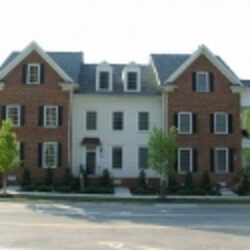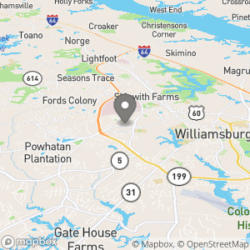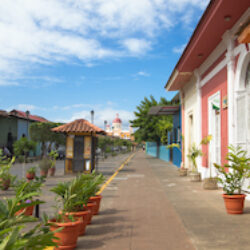Granada, Nicaragua


What It Is Like to Retire in Granada
Granada is the capital of the Granada department and the 4th largest city in Nicaragua. The population is just over 110,000. It is located on the northwestern shore of Nicaragua. Granada has long been a center of commerce with timber, gold, and copper the chief extractive industries. Granada's economy is becoming the national tourism hub. It is widely known for preserving some of the finest colonial-era architecture in the country.

Where to Retire in Granada and Home Prices
There has been a real estate boom with many European and Americans purchasing and renovating the area's homes for retirement or holiday homes. A review of listings appropriate for expats found houses for sale for less than $50,000 to the high $300's, with apartments for less. Here is a guide to buying property in Nicaragua, which is possible but which needs to be done with care.
What Is Special about Granada
Granada offers the prices and unique culture of Nicaragua, with the convenience and community of a town with a large ex-pat population. Where else can you buy traditional artisanal goods at the market, and then drop into yoga class followed by a gourmet Spanish meal housed in a historic colonial courtyard?
What Is Not Special about Granada
Granada is certainly one of the safer parts of Nicaragua, but is still of concern for those living here. The high number of foreigners investing in this city has helped the town in many ways, but at times there is jealousy among locals. Nicaragua is still going through difficult political times. Things are improving, but there is still much work to be done.

Who Will Like Retirement in Granada
Those people who are looking for a small city, with inexpensive living costs would enjoy Granada. You are able to experience unique Nicaraguan culture, but the high numbers of tourists and ex-pats living in the city mean that many of the conveniences from home can still be found in town.
Local Economy Is Driven by
The local economy is driven by tourism.
Climate and Physical Environment
Granada is located on a lake, within sight of the Volcano Mombacho. The lake tempers the heat compared with other Nicaraguan cities in the Pacific lowlands. However, it is still pretty hot year round, with averages around the 80s. The rainy season lasts from May to October, and involves heavy rainstorms every afternoon.
Restaurants & Cultural Scene
There is plenty to do in Granada. Wandering historic homes and churches provides a fascinating look at colonial architecture. The city has a few small museums and galleries. It also offers numerous restaurants, bars, a movie theater, and cafes that show independent films.
Crime
This is from the US Department of State OSAC site: "While crime rates are lower in Nicaragua in comparison to neighboring countries like Honduras, general crime is a persistent risk for residents and visitors alike. Crimes against U.S. citizens in the past year have ranged from petty theft to violent offenses." The Economist reports that Nicaragua is "surprisingly safe" compared to its neighboring countries, particulalry given its poverty levels.
Medical facilities
In town are a few private clinics and pharmacies for basic needs. Outside of town are a large public hospital and smaller private hospital. For more serious needs, larger and more modern hospitals are in Managua.
Transportation
Granada is an easily walkable city. Driving down these narrow streets would not be fun. Taxis, vans and pullman buses are convenient for exploring the interesting attractions in the area, as well as getting to the airport in Managua. It takes about 1.5 hours to get to Managua, which is a 2.5 hour flight from Miami.
Valuable Links
http://www.vianica.com/visit/granadahttp://www.escapeartist.com/efam19/Granada_Nicaragua.htmlhttp://www.nicatour.net/en/granada/granada-nicaragua.asphttp://www.cbnicaragua.com/granada_real_estate.php


Comments on "Granada"